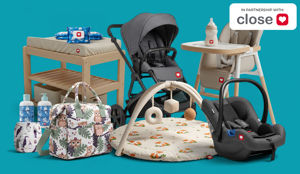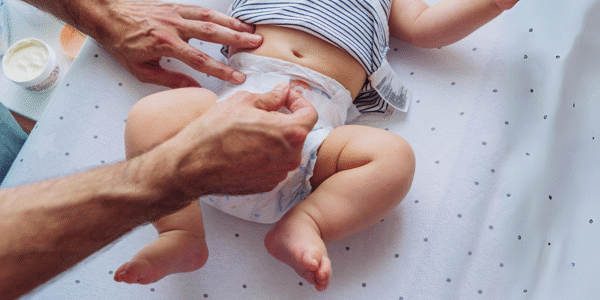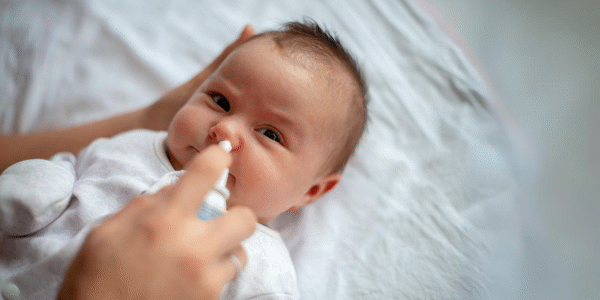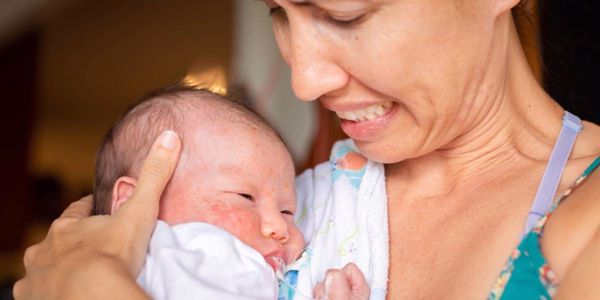If you’re the parent who was pregnant, you likely got used to feeling those delightful little tummy tickles that meant your baby was hiccuping (they were super cute, after all). But, like most new parents, you no doubt thought the hiccuping would end once your baby was born.
Nope!
Hiccups are a major part of your little one’s development and aren’t going anywhere anytime soon - which, we know, is both adorable and annoying.
Bonus though: from feeding methods to stress levels, you can learn a lot about your baby from when and why they hiccup.
Why is My Baby Hiccuping?
There are several reasons why your baby could be hiccuping - but the good news is all of them are perfectly normal!
Just like us, hiccuping is a reflex that your baby has no control over. And just like us, those hiccups can let you know if your baby is:
- Eating too fast
- Is stressed
- Is uncomfortable
- Is suffering from reflux
- What’s Reflux?
If your baby gets hiccups a lot after feeding, then they could be suffering from reflux.
Reflux is when your baby brings up milk during or after feeding.
Reflux isn’t usually something to worry about and will normally clear up by the time your child celebrates their first birthday. However, some cases can be severe. Don’t be afraid to contact your GP if you’re concerned your baby is suffering badly from reflux.
Is it Normal for Babies to Get Hiccups?
It is completely normal for your baby to get hiccups, and is actually a sign of healthy brain development. It’s thought hiccups are essential to your child’s breathing development.
Pretty cool, right?
To get technical, what we know as the ‘hiccup’ is caused by the involuntary movement of your diaphragm (this is the muscle that sits just under your lungs and helps you to breathe).
If you like to sing, you’ll use your diaphragm to help you take in enough air to hit those all-important high notes.
Just think, all those hiccups are helping your baby’s brain and lungs figure out how to work together.
Now, that’s teamwork!
How Long Should My Baby’s Hiccups Last?
Hiccups are usually nothing to worry about and should go away on their own after a few short minutes.
Sometimes though, a hiccup session can last up to 10 minutes, but this is still very normal!
If your baby seems fine and isn’t bothered by the hiccups, this is a good sign that everything is okay.
However, always remember you know your baby best. If you’re worried, please don't hesitate to contact your GP or speak to your health visitor.
When Should I Be Worried About My Baby’s Hiccups?
Hiccups are only something to worry about on very rare occasions. You should worry about your baby’s hiccups if:
- Your baby seems uncomfortable from the hiccups
- The hiccups wake them in the night
- Your baby keeps getting them
- They last longer than 10 minutes
- They are paired with other symptoms such as lethargy or a high temperature
Again, you know your baby best so if you feel something isn't quite right, it’s always best to contact your health visitor or GP.
Please note: If hiccups cause your baby to turn blue and they’re struggling to breathe, ring 999 immediately.
How Can I Help My Baby Stop Hiccuping?
Unfortunately, there’s not a lot you can do when your baby has hiccups.
You could try patting or rubbing your baby gently on their back to see if that helps, but more often than not you’ll just have to watch and wait for your little one to take back control over their breathing.
Remember, the hiccups are not hurting your baby, they’re just a bit annoying!
How Can I Prevent My Baby From Getting Hiccups?
Good news: there are a couple of things you can do to try and help prevent your baby from getting hiccups in the first place.
If you think their hiccups are caused by reflux, you could try:
- Feeding more slowly (ensuring they take regular breaks from the breast or bottle)
- Burping them more frequently (during feeding as well as after)
- Keeping your baby upright during, and after, feeds
- Trying different feeding positions
- Making sure they’re not super hungry when you start feeding them
- Checking your baby has a good latch
When bottle feeding, you could try:
- Making sure the teat of your bottle is completely full of milk during feeding
- Checking your bottle teat is the right size for your baby and isn’t letting in too little or too much air when they feed
If you think their hiccups are caused by stress, you could try:
- Having more quiet time during the day so your baby doesn’t become overstimulated
- Changing their nappy more regularly so they aren’t uncomfortable
Whatever you do though, do NOT:
- Scare your baby
- Give them water (babies cannot have water before they’re 6 months old)
- Have your baby hold their breath
Baby Hiccups are Nothing to Worry About
As long as your baby is happy and healthy and the hiccups aren’t causing them any alarm or distress, then they’re just a necessary (if annoying/uncomfortable) part of being a new little person!







